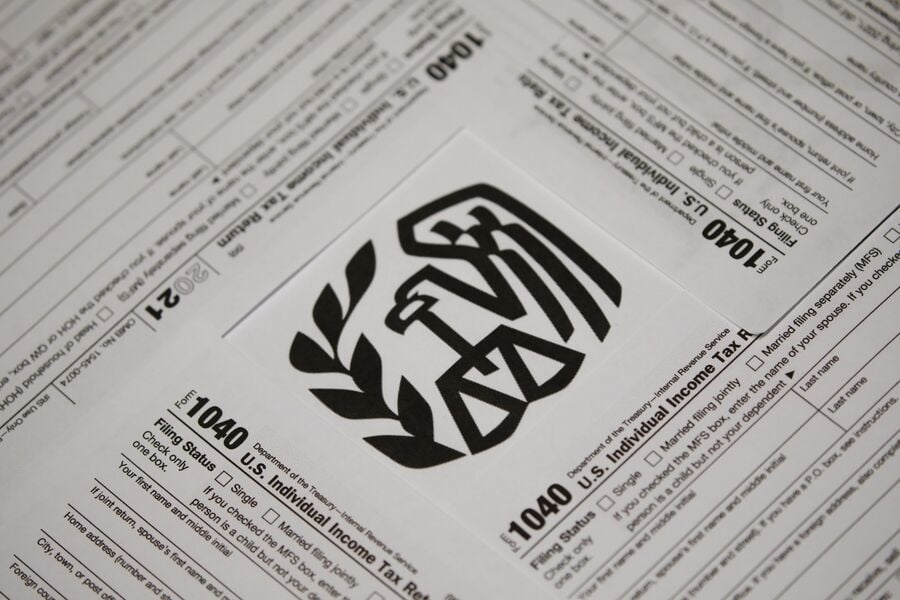

Wealthy Americans dodged getting hit by tax increases in the Democrats’ economic package, but they likely will face a much better-funded Internal Revenue Service equipped with new auditors and technology to uncover tax avoidance.
Top-earning Americans should be prepared for audit levels they haven’t seen in decades as the agency prepares to train an expanded workforce that specializes in complex financial dealings, including cryptocurrencies and offshore investments.
The tax and climate bill, which the Senate passed Sunday, includes $80 billion for the IRS over the next decade, a massive influx of cash for the agency that has faced budget cuts and declines in customer service and audit levels over the past decade. Democrats supporting the bill hope the bill will reverse those slides.
The non-partisan Congressional Budget Office projects that the $80 billion investment will yield an additional $204 billion in tax collection over the next decade. But other estimates, including some internal Treasury figures, suggest it could be much higher.
Treasury has projected that the additional IRS enforcement could be almost twice what CBO predicts — about $400 billion over 10 years. Academic research has also found that higher audit rates increase tax revenue in two ways, directly from the money collected from tax return examinations, as well as higher voluntarily compliance after a taxpayer is audited and from others who fear higher risk of IRS scrutiny.
Lawrence Summers, who served as Treasury Secretary under former President Bill Clinton, said the CBO’s figures are too conservative and that the IRS could collect far more from high-earning Americans and corporations.
“If this program is really implemented, instead of the $200 billion that the CBO estimates, I think the benefit could be $500 billion or even possibly, if they do a great job, $1 trillion,” he said in a interview with Bloomberg Television last week. “So I’m pretty optimistic about the fiscal potential here if the administration really steps up.”
The IRS has a lot of ground to make up on audits. The agency scaled back audits of all taxpayers between 2010 and 2019, with the total audit rate falling to 0.25% from 0.9%. The largest drop has been among those reporting $5 million or more, who have a 2.35% chance of being audited, down from more than 16% a decade ago, according to a May watchdog report from the Government Accountability Office.
“The IRS has proven time and time again that it can step up to some of these measures or goals,” said Eric Hylton, a former IRS official in the agency’s small business division who now is the director of compliance at alliantgroup. “If they’re saying $204 billion, I do think the IRS will be able to exceed that with the IT modernization, and the appropriate personnel and funding.”
More than half of the $80 billion, which is slated to be given to the IRS in chunks over the next decade, in the bill is designated for enforcement, including hiring and training new auditors, about one-third is for operations support, and the remaining money is to upgrade computer systems and improve taxpayer services.
It may take several years before the IRS starts to see results from the additional money. The CBO estimates that only $3 billion of the $204 billion will be collected next year, compared to more than 10 times that at the end of the decade. That’s largely because it can take years to train auditors, select cases and resolve audits.
IRS Commissioner Chuck Rettig said in a letter to Congress on Thursday that the agency has fewer auditors in the field at any time since World War II, underscoring the need for the additional money. Rettig told a House panel earlier this year that his agency is “outgunned” in examinations of large companies that have teams of corporate accountants and lawyers.
The IRS funding has faced loud criticism from Republicans in Congress who say pumping more funds into the agency will do harm to taxpayers. Republicans say the additional money will harass taxpayers who haven’t knowingly done anything wrong, despite assurances to the contrary from Rettig.
Senator Rob Portman, an Ohio Republican, told reporters Wednesday that he believes the IRS needs more money, but that the money should be directed to taxpayers services and technology not to bring greater scrutiny to taxpayers.
The House still needs to approve the bill before it can go to President Joe Biden’s desk to become law.

Wall Street leaders propose ways to monetize the mortgage giants.

A Texas-based bank selects Raymond James for a $605 million program, while an OSJ with Osaic lures a storied institution in Ohio from LPL.

The Treasury Secretary's suggestion that Trump Savings Accounts could be used as a "backdoor" drew sharp criticisms from AARP and Democratic lawmakers.

Changes in legislation or additional laws historically have created opportunities for the alternative investment marketplace to expand.

Wealth managers highlight strategies for clients trying to retire before 65 without running out of money.
Orion's Tom Wilson on delivering coordinated, high-touch service in a world where returns alone no longer set you apart.
Barely a decade old, registered index-linked annuities have quickly surged in popularity, thanks to their unique blend of protection and growth potential—an appealing option for investors looking to chart a steadier course through today's choppy market waters, says Myles Lambert, Brighthouse Financial.
